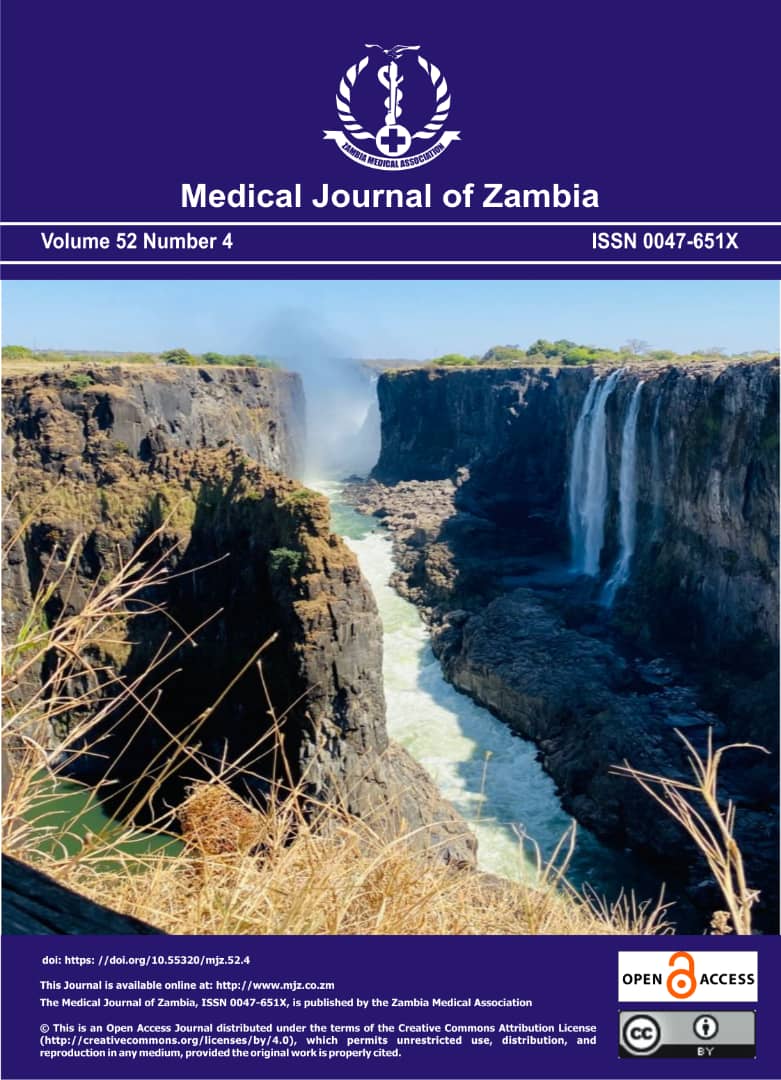Ischemic Stroke in Cryptococcal Meningitis in an HIV-Infected Patient: A Case Study from Lusaka Zambia.
DOI:
https://doi.org/10.55320/mjz.52.4.740Keywords:
ischemic stroke, cryptococcal meningitis, HIV-infected patient, rehabilitation, functional recoveryAbstract
Cryptococcal meningitis, caused by Cryptococcus neoformans, is a severe fungal infection that primarily affects individuals with weakened immune systems, particularly those with HIV/AIDS. It is the most common central nervous system fungal infection among AIDS patients and can lead to complications such as elevated intracranial pressure, seizures, and visual loss. Despite advancements in antiretroviral therapy (ART), cryptococcal meningitis remains prevalent in regions with limited access to healthcare, contributing significantly to HIV-related mortality.
Ischemic stroke is a rare but serious complication of cryptococcal meningitis, often associated with immune reconstitution inflammatory syndrome (IRIS) following the initiation of ART. IRIS can exacerbate inflammation and vascular damage, thereby increasing the risk of stroke. In this report, I presented a case involving a 44-year-old HIV-positive patient with cryptococcal meningitis complicated by ischemic stroke. The aim of this case report is to highlight the complexity of rehabilitating a patient with HIV and comorbid cryptococcal meningitis, and the effectiveness of physiotherapy interventions in improving functional recovery.
Downloads
Downloads
Published
Issue
Section
License
Copyright (c) 2025 Medical Journal of Zambia

This work is licensed under a Creative Commons Attribution-NonCommercial 4.0 International License.









